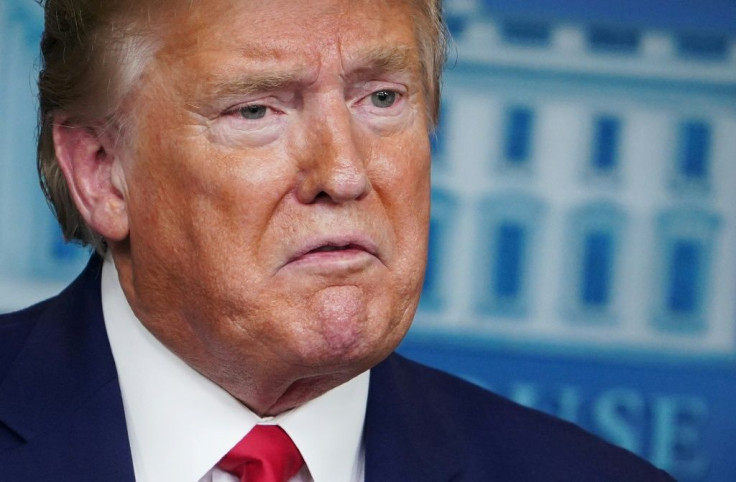Trump Says Will Halt Immigration Due To Coronavirus

President Donald Trump said Monday that he would temporarily suspend immigration to the United States because of the coronavirus pandemic, despite the US already being the worst-hit country in the world.
Trump referred to the "Invisible Enemy," a phrase he has used to describe the virus that has killed more than 42,000 people in the US, which has more than 766,660 infections.
"In light of the attack from the Invisible Enemy, as well as the need to protect the jobs of our GREAT American Citizens, I will be signing an Executive Order to temporarily suspend immigration into the United States!" he tweeted Monday night.
The State Department issued around 462,000 immigrant visas in the 2019 fiscal year, while US Citizens and Immigration Services granted permanent residence to nearly 577,000 individuals.
Trump said the move would also protect American jobs, although the state-imposed lockdowns to slow the virus have already left 22 million people in the US out of work.
His tweet gave no further details about what the measure would entail, how it would be implemented or how long it would be in place.
Trump could sign an executive order as soon as Tuesday, The Washington Post reported, citing two White House officials.
The real estate tycoon campaigned for office on a platform of immigration skepticism and has made policies restricting immigration central to his presidency.
Criticising the ban, California Democratic Senator Kamala Harris said Trump was using the coronavirus outbreak to push his anti-immigrant stance.
"Trump failed to take this crisis seriously from day 1," she tweeted.
"His abandonment of his role as president has cost lives. And now, he's shamelessly politicizing this pandemic to double down on his anti-immigrant agenda."
Trump has touted his move to restrict travel from China over the coronavirus in January after it emerged there late last year, and he halted travel from much of Europe in mid-March as the virus spread there.
The president likely has the authority to restrict immigration to protect public health, Cato Institute researchers Alex Nowrasteh and Andrew C. Forrester said in a blog post.
"However, blanket bans like those imposed by the administration in recent months and those coming on April 21 are akin to closing the barn door after the horse has escaped," they wrote.
"Most research on travel bans in response to pandemics finds that they don't limit the spread of diseases, in part because they are always imposed after the disease has spread."
Trump's tweet also implied that immigrants are spreading COVID-19 in the United States, they said.
However, examining the coronavirus date, "the rate of COVID-19 cases and deaths by county in the United States is not correlated with the share of the population that is foreign-born."
Trump has at times appeared impatient with efforts intended to slow the spread of the virus in the US -- appearing to lend support to protesters angry at governors' stay-at-home orders -- and has said parts of the country can begin to abandon lockdown measures soon.
He said Monday, however, that "we've really done the right thing" on fighting the virus, and that letting it spread unchecked would have been an "atrocity."
Trump has been widely criticized for initially downplaying the virus, which he likened to an ordinary flu and said was under control in the United States, before later accepting that it was a national emergency.
It was not immediately clear who would be affected by the latest immigration move as Washington has already suspended nearly all travel to the country.
The US last month suspended all routine visa services around the world -- including for immigrants -- due to the coronavirus pandemic, and has also imposed a series of travel bans.
The latest move is also likely to affect those hoping to apply for permanent resident "green cards."
© Copyright AFP 2024. All rights reserved.





















